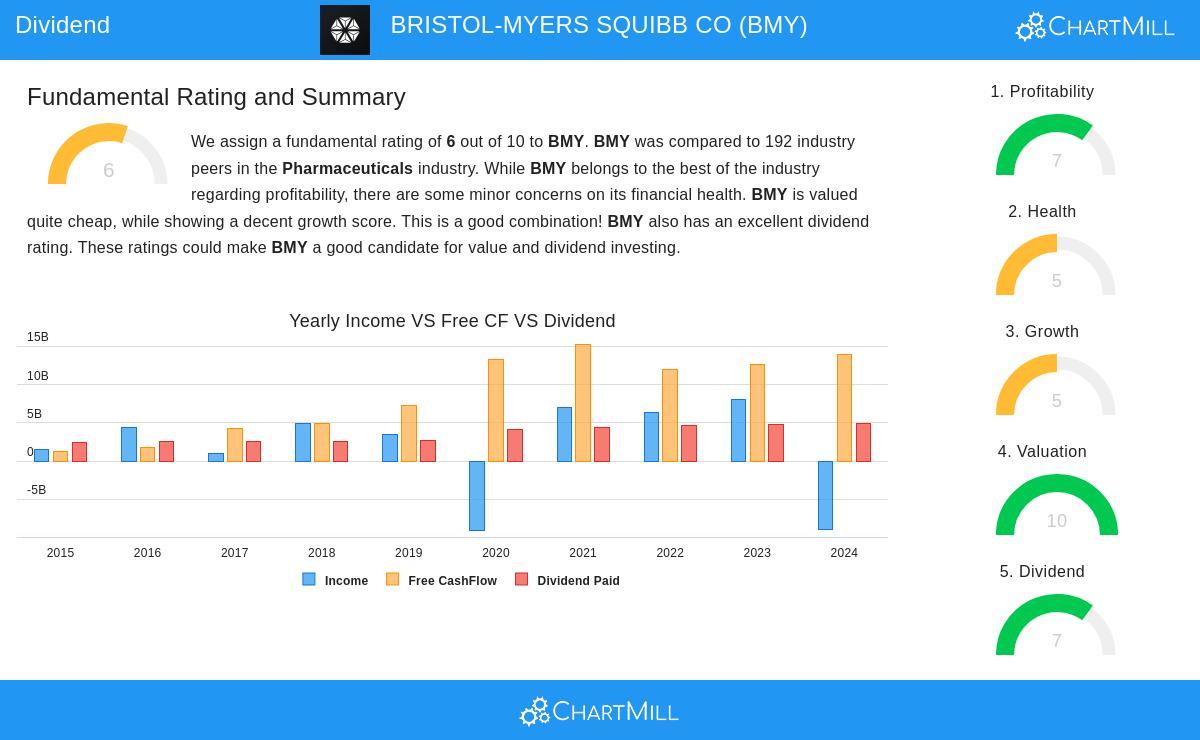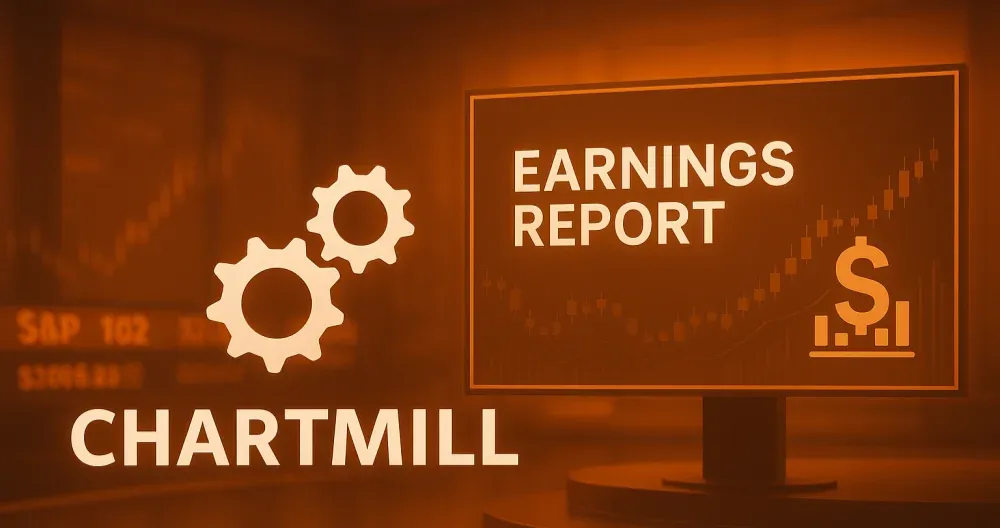For investors looking for dependable income, dividend investing is a fundamental method that mixes present income with lasting stability. The process used here applies ChartMill's organized filtering method, which finds companies displaying both appealing dividend features and basic soundness. This method focuses on stocks with good ChartMill Dividend Ratings (7 or higher) while keeping basic requirements for earnings and financial condition. By selecting for companies with sufficient trading activity and share price points, this method works to find lasting dividend payers instead of just pursuing the biggest yields, which may occasionally point to hidden financial trouble.

Bristol-Myers Squibb Co (NYSE:BMY) appears as a noteworthy option from this filtering process, showing a mix of appealing income production and acceptable basic strength that fits well with dividend-centered investment plans.
Dividend Appeal
The company's dividend characteristics are especially notable for income-focused investors, showing both good current yield and past consistency:
- Current Yield: BMY provides a solid 5.82% dividend yield, much greater than the S&P 500 average of about 2.33% and rating better than 98% of its pharmaceutical industry counterparts.
- Dividend Growth: The company has built a notable history of dividend raises, with a yearly growth rate of 11.67% over recent years, showing management's dedication to giving value to shareholders.
- Payment History: BMY has continued dividend payments for at least ten years, giving proof of dependability across different market situations without cuts over the last three years.
This mix of better-than-average yield, steady growth, and payment history meets the central dividend investor's need for both present income and defense against inflation through increasing payments over time.
Profitability Foundation
BMY's earnings measurements give important backing for its dividend continuity, reaching a ChartMill Profitability Rating of 7:
- Return Metrics: The company shows good returns on capital with a Return on Invested Capital of 16.93%, doing better than 94% of industry rivals, while its Return on Equity of 28.96% sits with the industry's top performers.
- Margin Strength: Operating margins of 30.27% are higher than those of 94% of pharmaceutical counterparts, pointing to efficient activities and pricing ability in its markets.
- Cash Flow Generation: Steady positive cash flow from operations over several years supplies the basic ability to maintain dividend payments.
These profitability numbers are important for dividend investors because they show the company's basic capacity to produce the earnings required to pay for both business investment and shareholder payouts.
Financial Health Considerations
With a ChartMill Health Rating of 5, BMY shows a varied but acceptable financial situation for dividend continuity:
- Positive Factors: The company produces value with ROIC greater than its cost of capital and has lowered shares outstanding over time, possibly improving per-share measurements. Its Debt to Free Cash Flow ratio of 3.37 years is positive, performing better than 89% of industry counterparts.
- Areas for Monitoring: A Debt-to-Equity ratio of 2.56 shows notable borrowing, rating poorer than 80% of pharmaceutical companies, while current and quick ratios are below industry averages, indicating tighter cash positions.
While not showing outstanding financial soundness, BMY's health measurements stay inside the filtering limits, pointing to enough stability to continue dividend payments while recognizing areas that need continued watching.
Valuation Context
BMY trades at appealing valuation levels that may give extra safety buffer for dividend investors:
- The stock's P/E ratio of 6.95 shows a major discount to both the S&P 500 average (26.19) and industry counterparts, with 95% of pharmaceutical companies trading at higher earnings multiples.
- Forward P/E of 7.49 and enterprise value to EBITDA ratios similarly point to discounted valuation compared to standards.
This valuation position possibly gives dividend investors not just income production but also price gain possibility if valuations adjust over time.
Growth Trajectory
The company's growth picture presents a detailed view with both positives and questions:
- Earnings Momentum: BMY displays notable EPS growth of 460.68% in the last year, with analysts forecasting continued good earnings growth of 36.11% each year.
- Revenue Dynamics: While past revenue growth has been good at 13.06% each year, expected revenue drops of about 5% each year deserve thought about long-term dividend continuity.
For dividend investors, the important connection between earnings growth and dividend growth stays positive, with earnings growing quicker than dividends, supporting the continuity of present payment levels.
Complete Assessment
BMY's detailed fundamental analysis report shows a company that fits well with careful dividend investment standards. The appealing yield, good dividend growth history, and acceptable profitability make a noteworthy income opportunity, while valuation measurements indicate possible price gains. The main thoughts for investors include watching the high payout ratio (98.12% of earnings), which leaves little room for earnings changes, and the higher debt levels that could limit financial room during industry difficulties.
For investors looking for more dividend options found through similar strict filtering methods, the Best Dividend Stocks screen gives regularly updated outcomes based on these basic criteria.
Disclaimer: This study is based on present basic information and is not investment guidance. Investors should perform their own investigation and think about their personal money situation before making investment choices. Past results do not ensure future outcomes, and dividend payments depend on company choice and financial ability.




